The diaspora caused by the invasion of Ukraine has been the largest in Europe since the last world war. Throughout the two years of the war, every imaginable or rememberable horror has taken place and the population has suffered the destruction, death and material and emotional annihilation of everything they possessed. Re-creations, the short film by Ukrainian director Polina Moshenska premiering at the 26th Thessaloniki Documentary Festival, shows us the consequences of this brutal disruption in the lives of three young people without us seeing a single image of the horror. However, the serene and spontaneous reflection of its protagonists will be more than enough to constitute a valuable testimony of the complex experience of war, far from home, through a powerful film, despite its short length.
Polya, Olena and Yulia had planned their studies before the invasion. The film’s director, originally from Kyiv, studies Film at the University of Edinburgh, Olena is from Mariupol and studies Architecture and Design in the capital of Scotland, while Yulia comes from Donetsk and lives in Glasgow, where she studies Global Migration and Social Justice. Throughout the fifteen-minute creative documentary in which Moshenska has unveiled an intimate story of friendship and inner struggle, we gain access from an internal perspective to the personal conflict of three women who, contrary to what might seem, are not safe. The war is far away, but the consequences are present in their daily lives, reinforcing their bond with friends and family, in a constant worry, no place in Ukraine is safe and all of them have an inner story of fear and annihilation. The stylistic choice of not making images of the war present, but family memories, in a very punctual way, reinforces the intimate character of Re-creations, which tells us about different ways of managing loss and worry. The viewer does not need to be literally shown a devastated country, because he can perceive its consequences in the minds of three young people, who, although it may not seem so, have not been able to stay out of it.
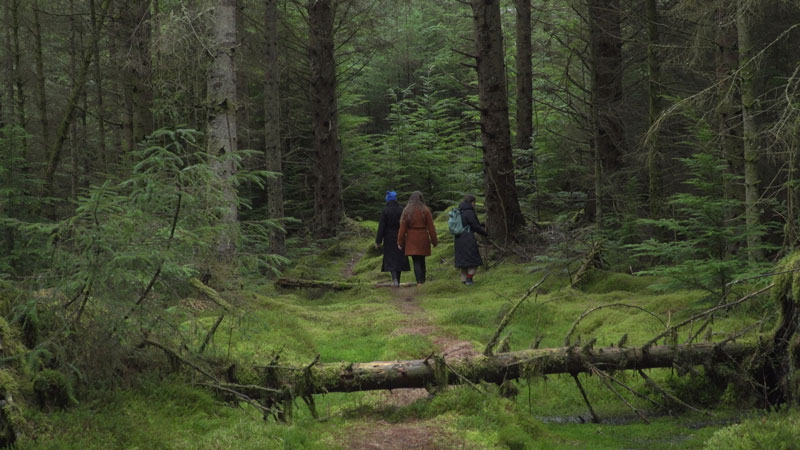
But what makes Re-creations special is the attitude of its protagonists in the face of the pain that weighs them down in Scotland, where the bombs are not heard and the sound of the tides seems so soothing. It is in the interior where everything happens, and he transmits it to us in few words and without affectation, thanks to images that suggest mourning and impasse at the same time, with a significant treatment of color and light and such black shots in which only the expressive faces of the three young women stand out. The stylistic minimalism manages at the same time to isolate them in time, categorizing them, turning them, in spite of themselves, into representatives of so many women who throughout history have asked themselves the same questions.
They confess to us that they have lost hope, thus in general, destroyed with the first bomb that has ended their future and any idea of confidence in humanity or in the history to be written. However, they cannot help but try to consciously or unconsciously dissolve the obstacles they face, among which guilt —for being “safe”, living, following the plan they had drawn up before the war— despair or oblivion, through humor and study, finding beauty in any chink of their daily lives and, above all, sharing their most intimate reflections with those who can understand them. Despite their different backgrounds, they are able to collaborate in a productive dialogue, provoked by the director, capable of showing the power of solidarity to overcome despondency and hopelessness.
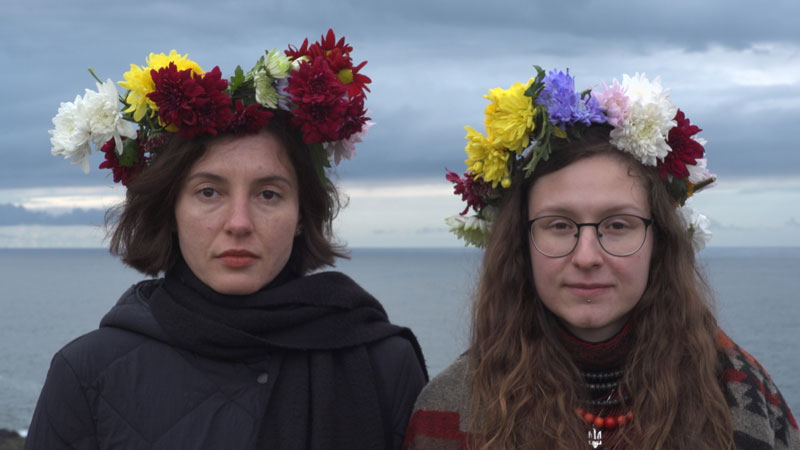
Is the pursuit of beauty still legitimate even in the worst circumstances? Should we consider ourselves frivolous for it and choose to live in incapacitating mourning? Do we deserve those instants of happiness that knowledge, self-realization and above all artistic creation give us, which not only provide us with private, but shareable emotions? All three had planned to pursue their graduate studies in the UK, long before the invasion in February 2022 and decided to follow their dream.
Without resorting to major statements, with the strength of their gazes, which sometimes lower in a gesture of modesty and embarrassment, Polina, Olena and Yulia say it all. They tell us about their very strong connection with home and the need for beauty, through three overlapping lines, the relationship of friendship, the family and the intimate, in which they individually assume their reflections. Re-creations raises this question: Is it possible to recover? The contrast between the fragments of nature shown in the film and the destruction is very eloquent: The sea, the algae, the forest, the flowers, function as a metaphor for the untouchable reserve that is that inviolable part of humanity, despite the suffering. And it is significant that that shared borsch and that traditional song sung a capella at the end, show, once again implicitly and metaphorically, with as much color as the wreaths of flowers that timidly elaborate and show off, that solidarity is the answer.
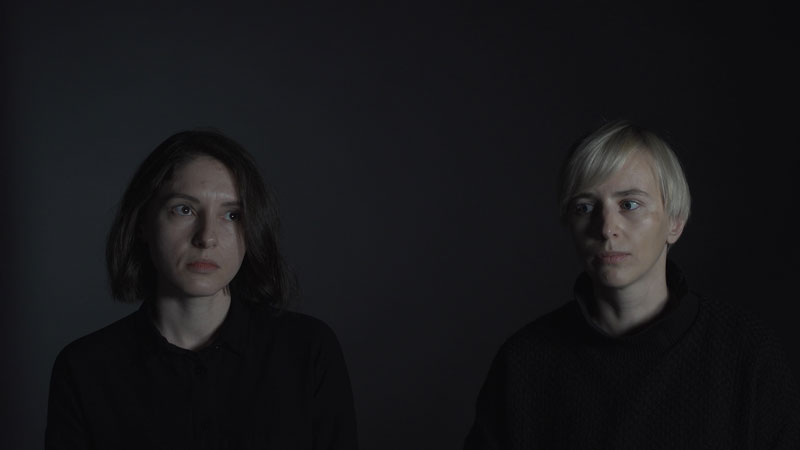
Moshenska, a graduate of Kyiv National University, with Masters in Cultural Studies and Film Directing from Edinburgh College of Art, University of Edinburgh, has travelled through various performances in the Ukrainian and European film industry. She has directed the short documentaries The Bridge (2014), Tsvetayeva and Mayakovsky (Streets) (2016) and Giorgos and Polya (2019), screened at several festivals. As an editor, she has collaborated with Mark Cousins on his feature documentary Cinema Has Been My True Love: The Work and Times of Lynda Myles, premiered at the Telluride Film Festival. Polya Moshenska is currently in pre-production on her first feature film to be directed, Greek Wife.

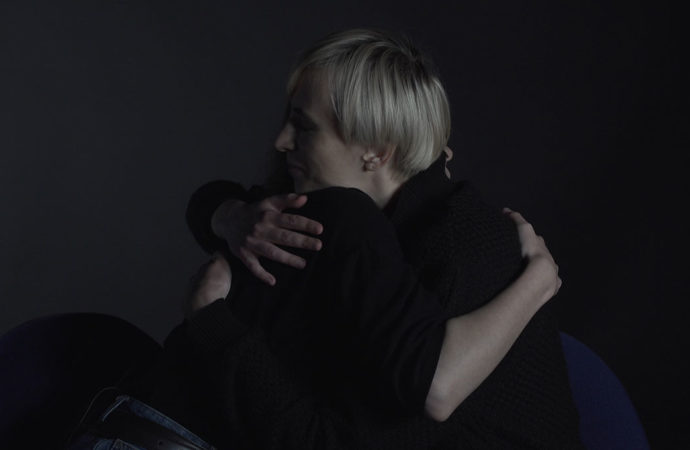


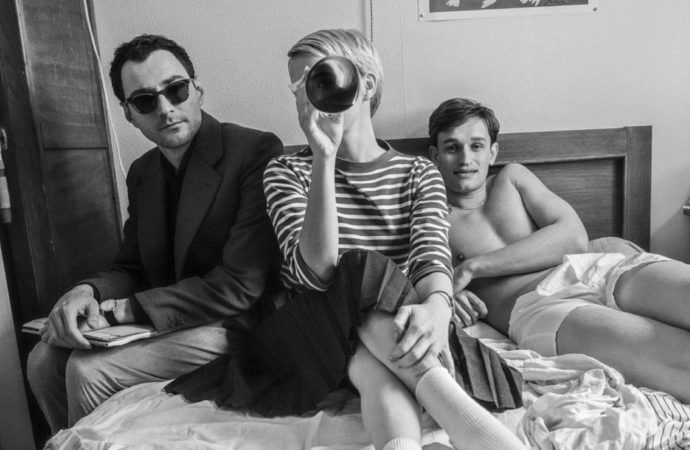
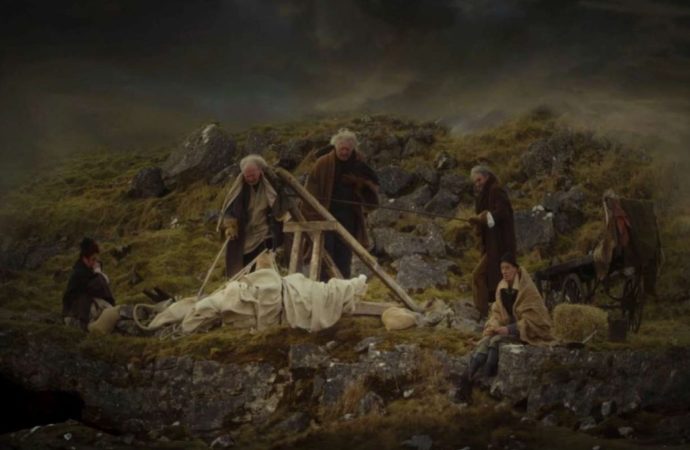
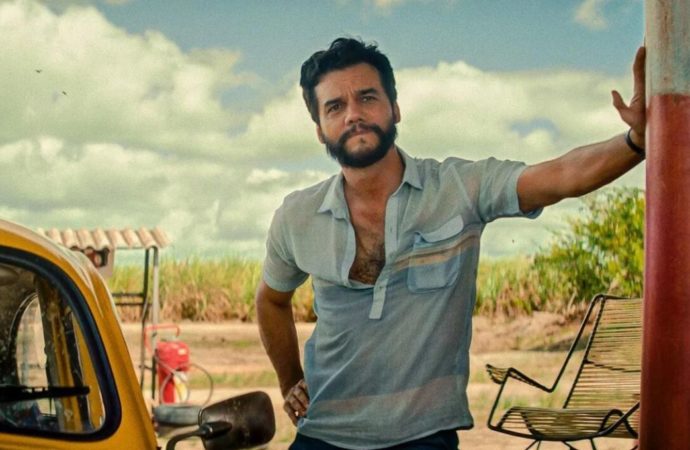
No one has posted any comments yet. Be the first person!